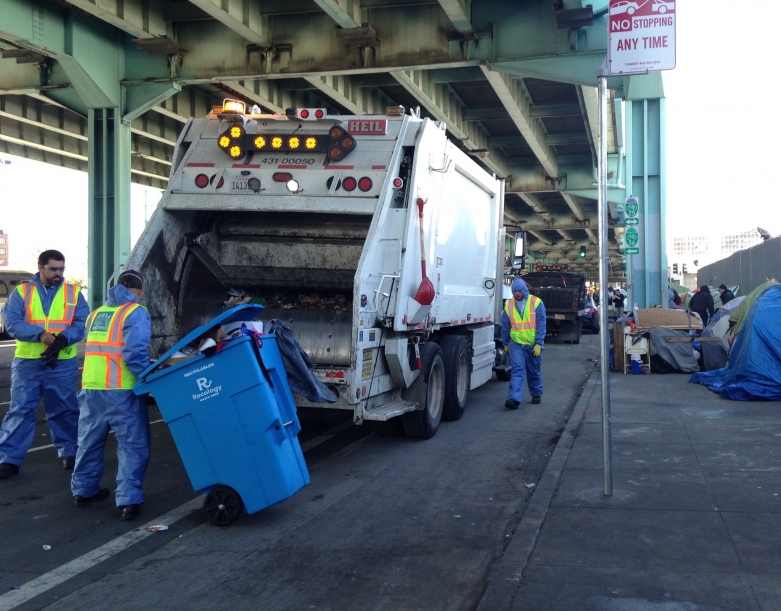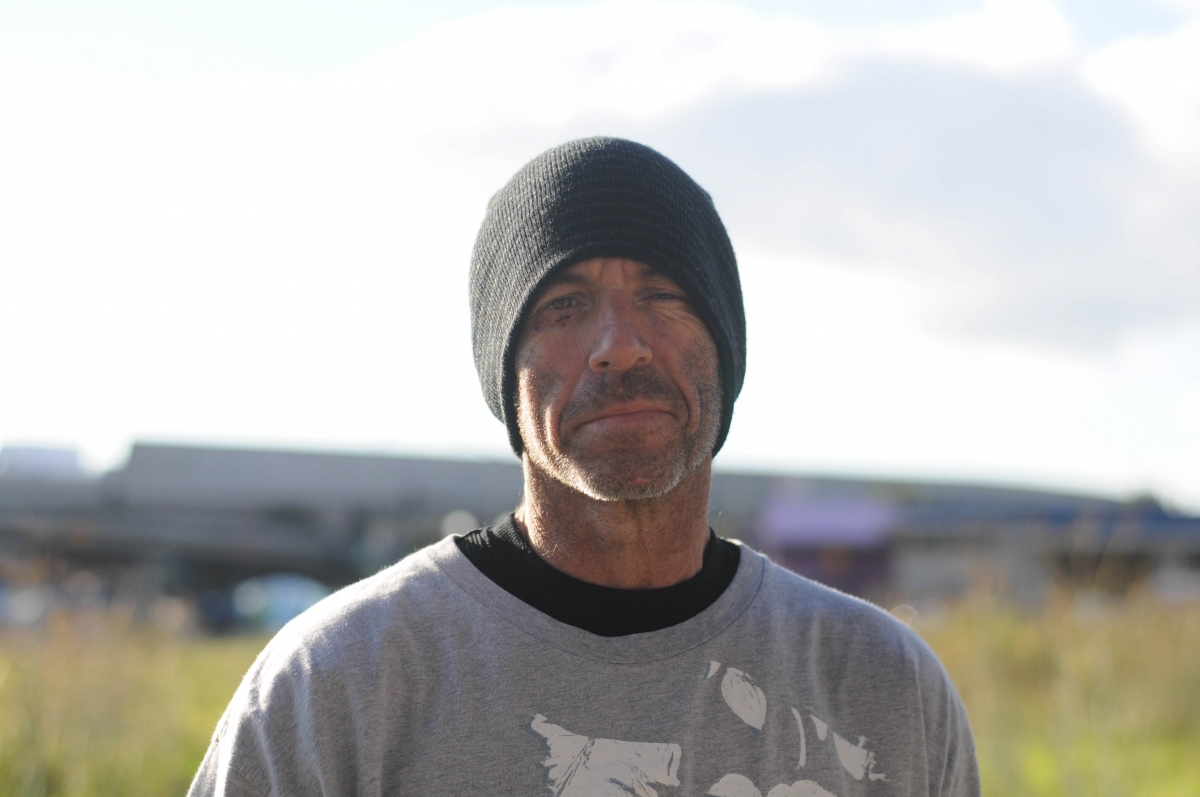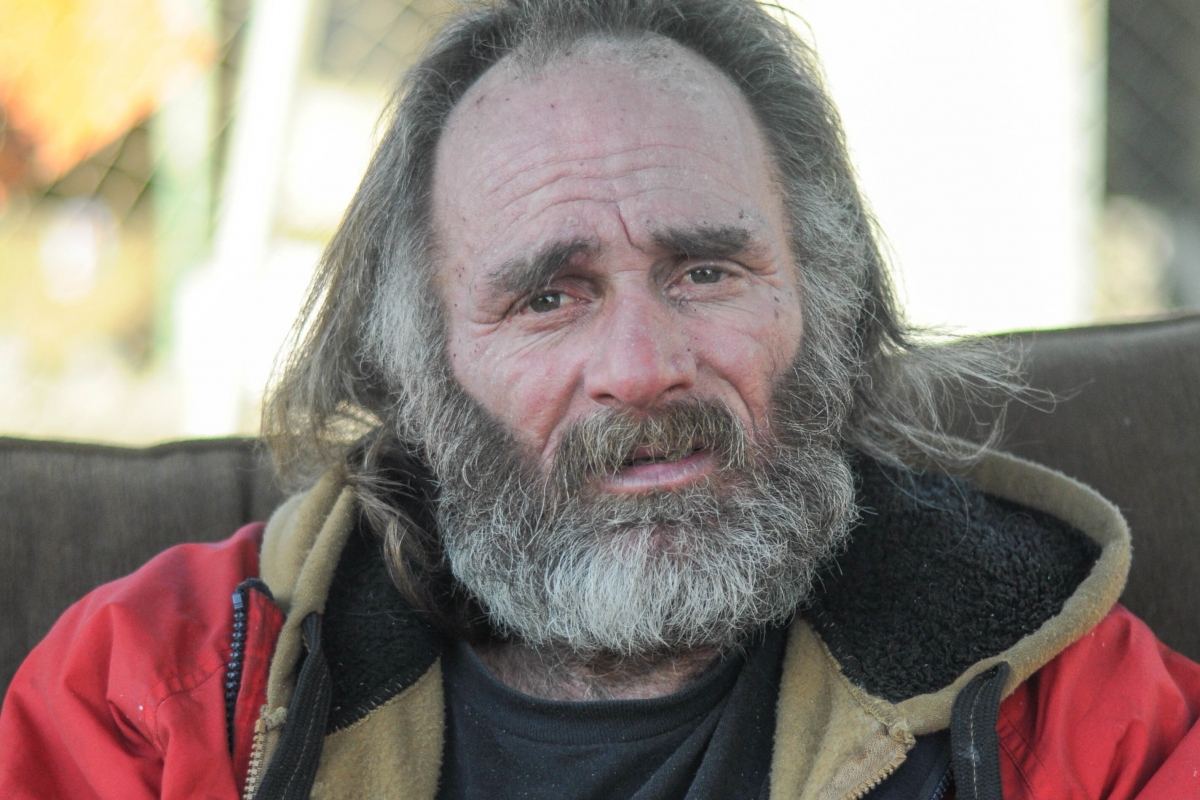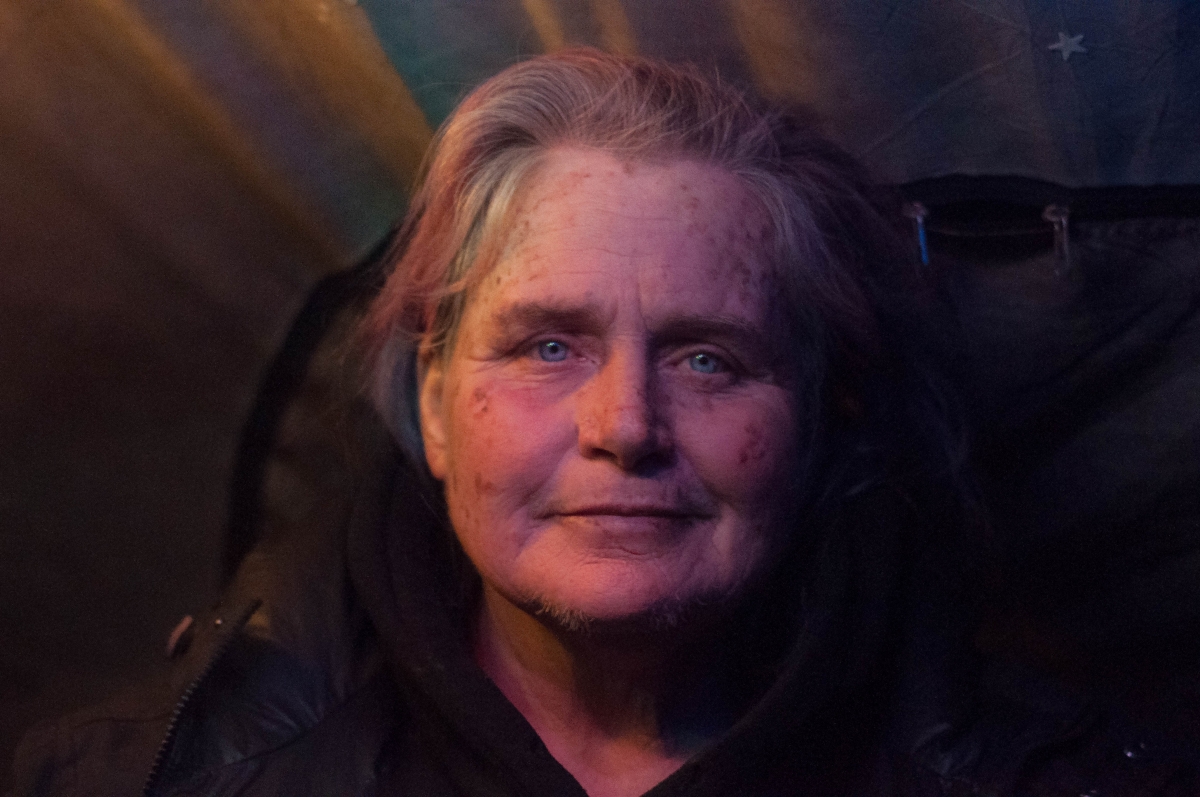Client Stories: Illegal Caltrans Sweeps of Homeless Encampments
Page Media

Sometimes the trucks arrive early. Sometimes they come with no notice at all. Sometimes, while workers from the California Department of Transportation make their way down the row of tents—seizing property and cherished belongings—people have mere minutes or seconds to grab everything they can carry before their bedding, clothes, tools, bikes, medicine, food, shelter, and other property are thrown into a Caltrans trash compactor and destroyed.
I’ve heard this story countless times from homeless people in the Bay Area and beyond. My colleagues who work on issues of poverty and inequality have too. For decades, save a few years where good practices and policies were followed because of lawsuit settlements, Caltrans and other government agencies in California have been conducting illegal sweeps of homeless encampments, cruelly and unconstitutionally seizing and destroying people’s property.
This morning we filed a lawsuit that seeks to stop this illegal practice once and for all.
Our clients' stories
 Kimberlee Sanchez is a longtime Oakland resident. She has been homeless in Oakland for five years. Sanchez has experienced so many Caltrans sweeps she has lost count. On one occasion in May of 2016, Caltrans confiscated and destroyed her belongings even though she was residing on city property. On that day, Sanchez lost an 18 karat gold necklace that had been a gift for Mother’s Day, a Coleman stove, food and groceries, all her bedding and clothing, and a tent. Caltrans also took a manila folder full of claims Sanchez had collected from community members who had also had their belongings destroyed – and threw it in the trash compacter.
Kimberlee Sanchez is a longtime Oakland resident. She has been homeless in Oakland for five years. Sanchez has experienced so many Caltrans sweeps she has lost count. On one occasion in May of 2016, Caltrans confiscated and destroyed her belongings even though she was residing on city property. On that day, Sanchez lost an 18 karat gold necklace that had been a gift for Mother’s Day, a Coleman stove, food and groceries, all her bedding and clothing, and a tent. Caltrans also took a manila folder full of claims Sanchez had collected from community members who had also had their belongings destroyed – and threw it in the trash compacter.
“If you are not with your belongings when Caltrans comes, they will throw everything away and destroy it. In the course of the time that I have been living on the street, I have had my belongings taken by Caltrans between five and ten times. I have lost count. If I kept counting it would drive me crazy.”
 Christopher Craner is a landscaper by trade, and was employed as a gardener by the Oakland Parks Department for ten years. Craner has been homeless on the streets of Oakland since 2014, after starting a landscaping business in Stockton and then moving back to Oakland to be nearer to his children. In March of 2015, a Caltrans sweep left Craner with nothing but the clothes on his back. While Caltrans conducted the sweep, Craner went to help a friend move their tent and was threatened with arrest when he tried to return for his own property. He watched everything he owned be thrown into the crusher of a garbage truck. Among other items, Craner lost warm weather clothing, a set of tools he used for intermittent work repairing cars, precious family antiques, tents, sleeping bags, and camping gear. In the hopes that some of his belongings had survived the sweep, he called Caltrans repeatedly, to no avail.
Christopher Craner is a landscaper by trade, and was employed as a gardener by the Oakland Parks Department for ten years. Craner has been homeless on the streets of Oakland since 2014, after starting a landscaping business in Stockton and then moving back to Oakland to be nearer to his children. In March of 2015, a Caltrans sweep left Craner with nothing but the clothes on his back. While Caltrans conducted the sweep, Craner went to help a friend move their tent and was threatened with arrest when he tried to return for his own property. He watched everything he owned be thrown into the crusher of a garbage truck. Among other items, Craner lost warm weather clothing, a set of tools he used for intermittent work repairing cars, precious family antiques, tents, sleeping bags, and camping gear. In the hopes that some of his belongings had survived the sweep, he called Caltrans repeatedly, to no avail.
“I don’t know anyone who has ever gotten their property back. Not one person. And I know several people who have tried. They’ve never gotten even a phone call back. I’ve been trying to get off the streets. Having to deal with Caltrans has not made that easier.”
 James Leone is a 56-year old Bay Area native who moved to Oakland 29 years ago. He is a trained mechanic who lost his job in the recession in 2008. When Leone couldn’t find a new job after being laid off, he sold all his belongings to make ends meet and still ended up homeless. In April of 2016, Caltrans arrived at Leone’s camp and told him he had five minutes to move his belongings. Within three minutes, Caltrans began throwing his property into a compaction garbage truck. Even though Leone’s bicycle was not on Caltrans property, it was thrown in the compactor. When Leone pulled his bicycle out of the compactor, a CHP officer threatened him with a Taser. That day, Leone lost a sleeping mat and bedding, all his clothing except what he was wearing, camping equipment, his Walkman, a family photo album, and a personal phone book. Because his sister’s phone number was in the phone book, he hasn’t been able to contact her since.
James Leone is a 56-year old Bay Area native who moved to Oakland 29 years ago. He is a trained mechanic who lost his job in the recession in 2008. When Leone couldn’t find a new job after being laid off, he sold all his belongings to make ends meet and still ended up homeless. In April of 2016, Caltrans arrived at Leone’s camp and told him he had five minutes to move his belongings. Within three minutes, Caltrans began throwing his property into a compaction garbage truck. Even though Leone’s bicycle was not on Caltrans property, it was thrown in the compactor. When Leone pulled his bicycle out of the compactor, a CHP officer threatened him with a Taser. That day, Leone lost a sleeping mat and bedding, all his clothing except what he was wearing, camping equipment, his Walkman, a family photo album, and a personal phone book. Because his sister’s phone number was in the phone book, he hasn’t been able to contact her since.
“I’ve made money helping people with their cars and doing odd jobs. I recycle and dumpster dive. I have dreams and aspirations for my life. I don’t want to be homeless on the streets of Oakland forever. CalTrans has been a major obstacle to getting my life together. Twice in six years, I’ve been left with only the clothes on my back. Twice I’ve lost everything I own in the world.”
 Patricia Moore graduated from the University of Alabama with a BA in physical therapy, and originally became homeless when a shoulder injury prevented her from continuing to work as a physical therapist. In 2013, Moore was hit by a car while riding her bicycle, and now uses a cane and a walker to help with mobility. Caltrans has taken and destroyed her belongings on at least five separate occasions. On April 29, 2016, Moore was packing up her bags in anticipation of a Caltrans sweep when Caltrans workers arrived an hour earlier than indicated by their posted notice, and immediately begin confiscating her property. They threw her tent into a compactor, took her bicycle, and almost threw away her walker before a friend of Moore’s intervened.
Patricia Moore graduated from the University of Alabama with a BA in physical therapy, and originally became homeless when a shoulder injury prevented her from continuing to work as a physical therapist. In 2013, Moore was hit by a car while riding her bicycle, and now uses a cane and a walker to help with mobility. Caltrans has taken and destroyed her belongings on at least five separate occasions. On April 29, 2016, Moore was packing up her bags in anticipation of a Caltrans sweep when Caltrans workers arrived an hour earlier than indicated by their posted notice, and immediately begin confiscating her property. They threw her tent into a compactor, took her bicycle, and almost threw away her walker before a friend of Moore’s intervened.
“One of the workers looked at me and said, “I’m going to take everything that you have.” They would start at one end of the line of tents along the sidewalk and work their way down it, throwing belongings into the trucks. They always came with a compactor garbage truck.”
Homeless people deserve respect for their humanity and their belongings
Taking and destroying people’s property is not a solution to homelessness; to the contrary, it makes it all that much harder for homeless people to find housing. It’s also against the law. Everyone is protected from the seizure and destruction of their property by the government, under the Fourth and Fourteenth Amendments to the Constitution, whether they live in a mansion or in a tent. We can't tell people to pull themselves up by their bootstraps if we've confiscated and destroyed their boots.
Michael Risher is a Senior Staff Attorney with the ACLU of Northern California.
